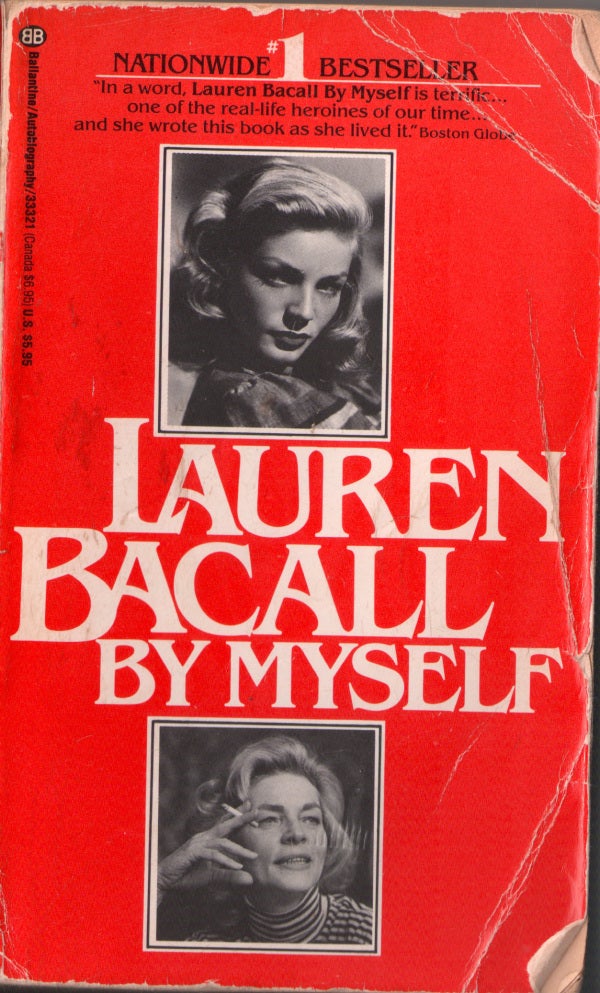The great Saturnino Orestes Arrieta, aka Minnie Minoso, is dead.
One of my favorite players in history, he was bona fide even if the Hall snubbed him.
Thank you, Papi.
The great Saturnino Orestes Arrieta, aka Minnie Minoso, is dead.
One of my favorite players in history, he was bona fide even if the Hall snubbed him.
Thank you, Papi.
I was in my Bronx apartment on the morning of September 11, 2001. I watched on TV like the rest of the country. Eventually, I don’t recall if it was later that day or the following day, or the day after that, I got on the subway and went as far south as I could go–14th Street. I felt the need to get closer. I couldn’t go further downtown so I turned around and walked up 8th Avenue. As I passed the bus terminal at 40th Street I saw Joe Franklin talking on a pay phone. He was alone, a pregnant briefcase resting between his feet. I had been in a daze and the sight of Franklin snapped me out of it for a moment. It was comforting to see him.
“Hey, Joe Franklin” I said to nobody in particular and kept walking.  Franklin, a New York fixture for many of us, died the other day. He was 88.
Franklin, a New York fixture for many of us, died the other day. He was 88.
[Photo Credit: Andrew Savulich; Illustration by Drew Friedman]
“It is a community activity. You need all nine people helping one another. I love bunt plays. I love the idea of the bunt. I love the idea of the sacrifice. Even the word is good. Giving yourself up for the good of the whole. That’s Jeremiah. That’s thousands of years of wisdom. You find your own good in the good of the whole. You find your own individual fulfillment in the success of the community — the Bible tried to do that and didn’t teach you. Baseball did.”–Mario Cuomo
Not long ago I looked through some old stuff and found a Mondale/Ferrero bumper sticker. I was in 8th grade when they ran and lost. I kept the sticker. Four years later I campaigned for Dukakis who also got his ass kicked. These were the years when it seemed like there’d never be a Democrat in the White House again, a time when our Governor Mario Cuomo seemed like our best hope, an improbable hope. The second coming of Adlai Stevenson. I remember a friend of mine was obsessed with Cuomo; had posters of the man on his bedroom wall.
I thought about all of that last night when I heard that Cuomo died at the age of 82.
Here’s Ken Auletta in the New Yorker…
[Photo Credit: Richard Kalvar]
From Douglas Martin in the Times:
On Saturday mornings, Tom’s restaurant in Brooklyn is so popular that people line up outside just to be served old-fashioned diner cuisine like chocolate egg creams and all manner of pancakes. It’s been that way for years, and until the owner, Gus Vlahavas, died this month at 76, the patrons’ patience was rewarded with the free coffee, cookies, sausage bits and orange slices he handed out while they waited.
Mr. Vlahavas started working at Tom’s, which opened as an ice-cream parlor under a different name in 1936, when he was 9 years old. He stayed for more than 60 years, lovingly molding it into a homey Brooklyn family institution before retiring in 2009.
He died of respiratory complications on Nov. 4 at Columbia University Medical Center in Manhattan, his daughter, Beth Vlahavas, said.
Changelessness was the stock in trade at Tom’s, right down to the décor, including a half-dozen American flags and bright plastic flowers on the tables. It has had only one address since it was opened by Mr. Vlahavas’s paternal grandfather: 782 Washington Avenue.
[Photo Via: City.se]
I remember my mother reading Bacall’s autobiography when I was a kid. It won a National Book Award and is one of the finest Hollywood memoirs, not only for her life with Bogart but for her life after him.

The picture on the back cover was something I looked at a lot. Man, she was so glamorous and I imaged that my mother and father were that romantic when they met. My mom was a beautiful young woman but her romance–and marriage–to my father did not last. Still, she pushed on, and was not defeated. I’ve always thought that Bacall’s book helped her out during the painful early days of her divorce.
Tonight’s game is rained out.
In the meantime, what if Robin Williams played Casey Stengel?
And more:
[Photo Via: This Isn’t Happiness]
In the Times, John Le Carre remembers Phillip Seymour Hoffman:
There’s probably nobody more redundant in the film world than a writer of origin hanging around the set of his movie, as I’ve learned to my cost. Alec Guinness actually did me the favor of having me shown off the set of the BBC’s TV adaptation of “Tinker Tailor Soldier Spy.” All I was wanting to do was radiate my admiration, but Alec said my glare was too intense.
Come to think of it, Philip did the same favor for a woman friend of ours one afternoon on the shoot of “A Most Wanted Man” in Hamburg that winter of 2012. She was standing in a group 30-odd yards away from him, just watching and getting cold like everybody else. But something about her bothered him, and he had her removed. It was a little eerie, a little psychic, but he was bang on target because the woman in the case is a novelist, too, and she can do intensity with the best of us. Philip didn’t know that. He just sniffed it.
In retrospect, nothing of that kind surprised me about Philip, because his intuition was luminous from the instant you met him. So was his intelligence. A lot of actors act intelligent, but Philip was the real thing: a shining, artistic polymath with an intelligence that came at you like a pair of headlights and enveloped you from the moment he grabbed your hand, put a huge arm round your neck and shoved a cheek against yours; or if the mood took him, hugged you to him like a big, pudgy schoolboy, then stood and beamed at you while he took stock of the effect.
Philip took vivid stock of everything, all the time. It was painful and exhausting work, and probably in the end his undoing. The world was too bright for him to handle. He had to screw up his eyes or be dazzled to death. Like Chatterton, he went seven times round the moon to your one, and every time he set off, you were never sure he’d come back, which is what I believe somebody said about the German poet Hölderlin: Whenever he left the room, you were afraid you’d seen the last of him. And if that sounds like wisdom after the event, it isn’t. Philip was burning himself out before your eyes. Nobody could live at his pace and stay the course, and in bursts of startling intimacy he needed you to know it.
Bob & Carol & Ted & Alice, Harry and Tonto, Next Stop, Greenwich Village, Moscow on the Hudson, Down and Out in Beverly Hills. The man made some choice movies.
I saw this yesterday on Sandy Morse’s Facebook page. She edited Woody Allen’s movies for many years.
She remembers Gordon Willis:
It must have been 9 years ago, almost to the day, that Gordon Willis asked me to write something for a magazine in celebration of his 75th birthday. I am painfully shy, but I would do anything for Gordy. I can’t believe he’s gone:
“I first time I met Gordy, he was performing magic. It was the first time I set foot on a professional movie set and Gordy was shooting Diane Keaton’s spirit getting up out of bed and leaving her body behind while Alvy and Annie were beginning to make love. People are always surprised to hear that that effect was done in camera, as were all of the visual effects in “Annie Hall,” with the exception of two: the wipe revealing Alvy’s and Annie’s families at the dinner table, and the subtitles, revealing Alvy’s thoughts as he and Annie sip wine on her terrace.
What people find more shocking is that there were similarly only two shots in “Zelig” where a visual effects house was involved in the task of interpolating Woody into the archival footage. The rest of the film’s look was created through Gordy’s thorough knowledge of labs, lenses and lighting and his tireless commitment to the pursuit of perfection. “Zelig” epitomized the 99% perspiration of Gordy’s genius and, tangentially, gave me the kind of education in film that money can’t buy. “Aging” the film took us approximately nine months of duping and bi-packing dirt, grain, scratches and flicker to differing degrees depending on the alleged source of the footage. Everything was done with a purpose and a meticulous attention to detail. It seems appropriate and poignant that “Zelig” should have been the first film for which Gordon was nominated for an Academy Award. I can’t imagine anyone else at the time having undertaken such a monumental task. And still Gordy didn’t get the credit he deserved because he did his job too well, convincing his peers as well the audience at large that the footage had been shot 50 years earlier.
Over the course of his career, Gordy seemed always to know exactly what he was doing and the results were often breathtakingly beautiful. But I also remember a dailies screening on “A Midsummer Night’s Sex Comedy,” when Leopold (Jose Ferrer) was running through the woods at night, after having shot Maxwell (Tony Roberts) with a bow and arrow. This time Gordy had pushed the envelope a bit too hard and Leopold’s face was—let’s face it—black, against a forest of equally black silhouettes of trees. All of us in the screening room were squinting to try to see the shadow detail that just wasn’t there. Leopold ran across the frame one more time, saying, “Blood! I’ve drawn blood! Who am I?,” when suddenly, out of the darkness of the screening room, Gordy’s gravelly voice answered: “How the hell should I know? I can’t see a thing.” Michael Jordan misses shots. Tiger Woods misses putts. Gordon Willis misses exposures—occasionally. All three, however, will be remembered for the vast majority of the time they don’t.
Happy birthday, Gordy! I treasure the ten years we spent together. I never enter a screening room without thinking of you. And I never cut a film without thinking of relativity and repeatability and shoe leather and dump truck directors. Thanks for the memories….
Love, Sandy”